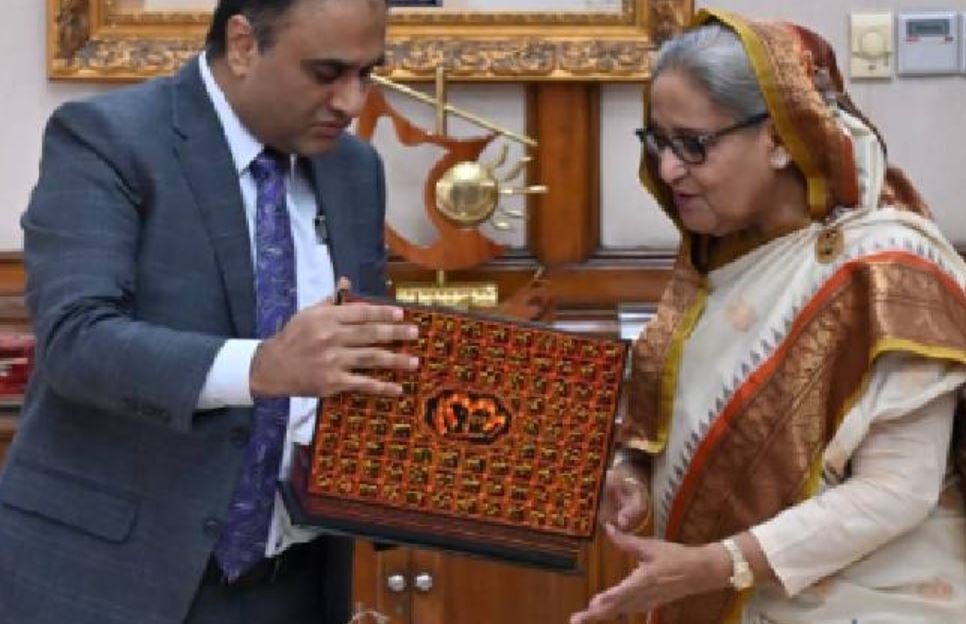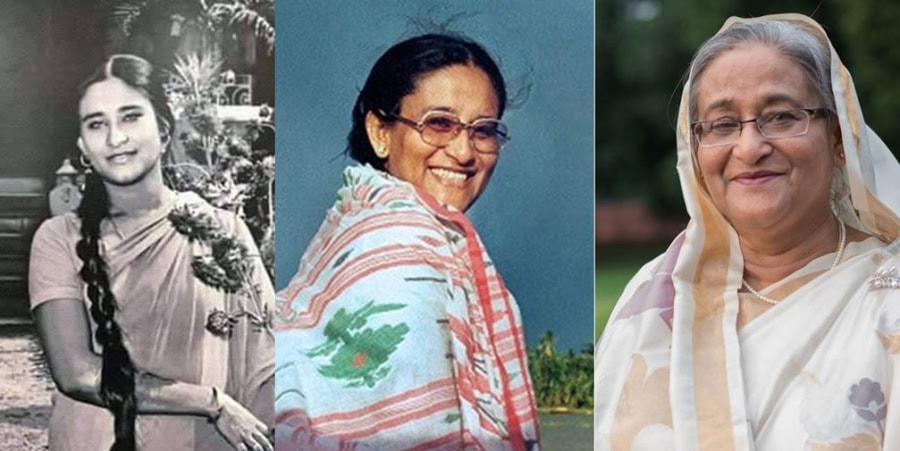Tens of thousands of Bangladeshis in Dhaka protested, forcing Prime Minister Sheikh Hasina to step away amid deadly protests.
As Sheikh Hasina resigned as Bangladesh’s Prime Minister and fled to India, ending her decades-long rule, Pakistan Observer brings you crucial moments from her life.
Sheikh Hasina Wajid
Hasina, who was born in 1947, was the longest-serving leader in Bangladesh’s history. Her tenure saw significant economic and infrastructural advancements, though it was also marred by accusations of political interference and autocracy.
The leadership of Awami League leader was briefly interrupted by armed forces rule and protests from 2006-2008.
In 1975, she lost most of her family in a coup that killed her father, Sheikh Mujibur Rahman – the country’s founder. She also survived an assassination attempt in 2004 and returned to power in 2009. Despite her long tenure, she faced criticism for her increasingly autocratic style and handling of dissent.

Hasina carried her late father’s legacy but she remained an autocratic leader. After her father’s assassination in 1975, she lived in exile in India for six years before returning to Bangladesh in 80s.
She took charge as President of Awami League in 1981 and led the party to victory in the 1996 polls. During her first term, she inked landmark water-sharing treaty with India and introduced reforms to several industries.

In her second stint, Sheikh Hasina continued to promote economic growth and development, while also facing criticism for her government’s handling of protests and allegations of corruption.
2024 Bangladesh quota reform movement, led by students, initially aimed to address unfair government job recruitment practices but evolved into a broader protest against perceived authoritarianism. The situation intensified when police and government forces killed many unarmed protesters and civilians, including children.
The 2024 Bangladesh quota reform movement, led by students, initially aimed to address unfair government job recruitment practices but evolved into a broader protest against perceived authoritarianism.
The situation intensified when police and government forces killed many unarmed protesters and civilians, including children.

Despite these challenges, Hasina remains popular figure in Bangladesh and has been praised for her efforts for industrialisation.
Bangladesh PM Hasina resigns after army gives 45-minute ultimatum amid protests










